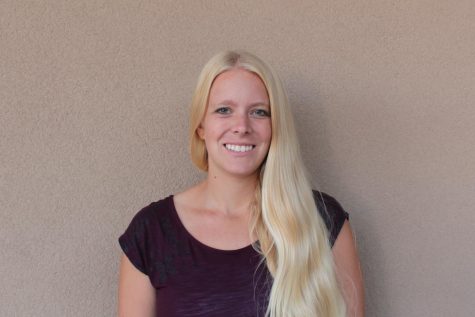A ‘Special’ Occasion
Glendale High to host this year’s Special Olympics
Any avid soccer player knows there is no feeling like the one on the field. There’s the thrill of working the ball down as a team, dribbling around defenders, the grass stains that are worn with pride from a slide-tackle steal, and then the heart-pounding moment of standing directly in front of an anxious goalie before taking the whistle beating winning shot with friends and family as witnesses. But nothing tops the field over the top sideline celebration between teammates and coaches.
Sports are one of the most popular human activities and competitiveness is a part of human nature. Cohesiveness of the mind and body coupled with passion and perseverance, are all needed in order to compete in any sporting event. It’s no surprise that many people want to participate, even the ones who are commonly excluded.
The Special Olympics is an organization well known for cultivating an athletic platform for people with special needs, who aren’t typically given a chance on traditional sports teams. The organization is celebrating its 50th birthday, which means 50 years of advocacy, inclusiveness and commemorating differences while simultaneously making a difference.
In affiliation with Glendale College, the Southern California Special Olympics division will play the world’s most popular sport this fall. With an estimated fanbase of half the world’s population according to World Atlas, soccer is an exhilarating game due to its fast paced nature and hard-hitting plays. The Special Olympics version should be no exception.
The games are set to take place at Glendale High School in October. In past years, the event had been enthusiastically hosted on Glendale College’s grounds, but due to the construction of the new buildings, it has since been moved to its new location at the high school.
Being apart of a team and joining forces in pursuit of a common goal, allows members to face challenges together. This is an empowering feeling for people who often experience isolation as a societal side effect of their disability. Kim Villa, a coordinator for the SoCal division says, “One of the greatest impacts we see is social growth, they learn how to be a teammate but they also find friends that have [been through] similar experiences.”
While the athletes will be competing for the tournament’s top spot, the Special Olympics is about much more than just playing sports and winning games. It’s about unity, sportsmanship and friendship.Through sports, the Olympians build confidence and a sense of accomplishment by pushing themselves to see how much they’re capable of. Villa says, “Not only are they able to perform at a higher level, they also gain a lot of confidence. When you put something in front of someone and say ‘I believe you can do this’ and they do it, it [will] increase anyone’s confidence. Especially for these people, who are told more often what they can’t do.” Villa also goes on to say there are statistics that prove the Special Olympics makes them more employable.
The games are also about letting them be seen and appreciated by society instead of hidden away or overlooked. When people first see a person with special needs, they often fail to see past their disability. They want to be seen as something they have and not something that completely defines them. They don’t want pity, rather they just want to be treated like everyone else.
Therefore, the Special Olympics are not society’s participation ribbon. “They play by the rules of the game” Villa admits, “They don’t travel, they don’t get play out of bounds, they don’t get to shoot 20 times until they make a shot and that’s respectable.” In addition, these competitors train just as much, if not more than normal teams. As champions in their own right, these athletes carry the torch in thriving through diversity. In this way, the Special Olympics continuously proves that sports are truly for everyone.
The Special Olympics prides itself on being completely free to anyone who wishes to participate. However, this is not possible without the generosity of donors and volunteers. The SoCal Special Olympics coordinator, Kim Villa, is seeking anyone who wants to get involved. She can be reached at [email protected].

